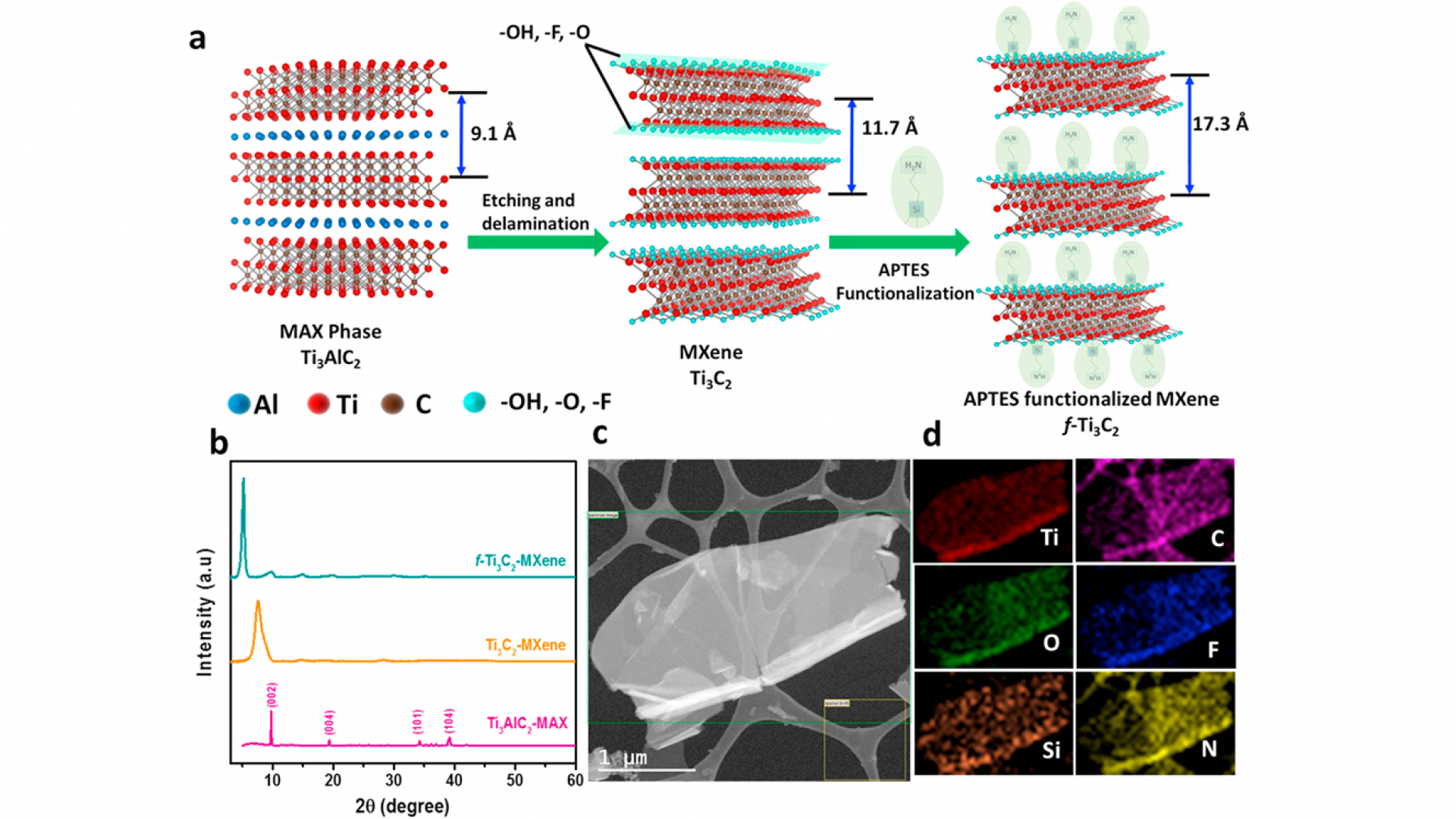Saurabh Kumar, et al., "Biofunctionalized Two-dimensional Ti3C2 MXenes for Ultrasensitive Detection of Cancer Biomarker". Biosensors and Bioelectronics, 121, 2018, 243.
In this work, ultrathin Ti3C2-MXene nanosheets were synthesized by minimally intensive layer delamination methods, and uniformly functionalized with aminosilane (f-Ti3C2-MXene) to provide a covalent binding for the immobilized bio-receptor (anti-CEA) for label free, ultrasensitive detection of cancer biomarker (carcinoembryonic antigen, CEA). The effect of different redox probes on the electrochemical behavior of f-Ti3C2-MXene was investigated and found that hexaammineruthenium ([Ru(NH3)6]3+) is the preferable redox probe for biosensing. The fabricated biofunctionalized Ti3C2-MXene exhibits a linear detection range of 0.0001–2000 ng mL−1 with sensitivity of 37.9 µA ng−1 mL cm−2 per decade. The wider linear detection range of our f-Ti3C2-MXene is not only higher than previously reported pristine 2D nanomaterials, but is even comparable to other hybrid 2D nanomaterials. We believe that this work opens a new window for development of MXene-based highly sensitive DNA, aptamer, enzyme, antibody, and cell based biosensors, and could be further used in drug delivery application.
